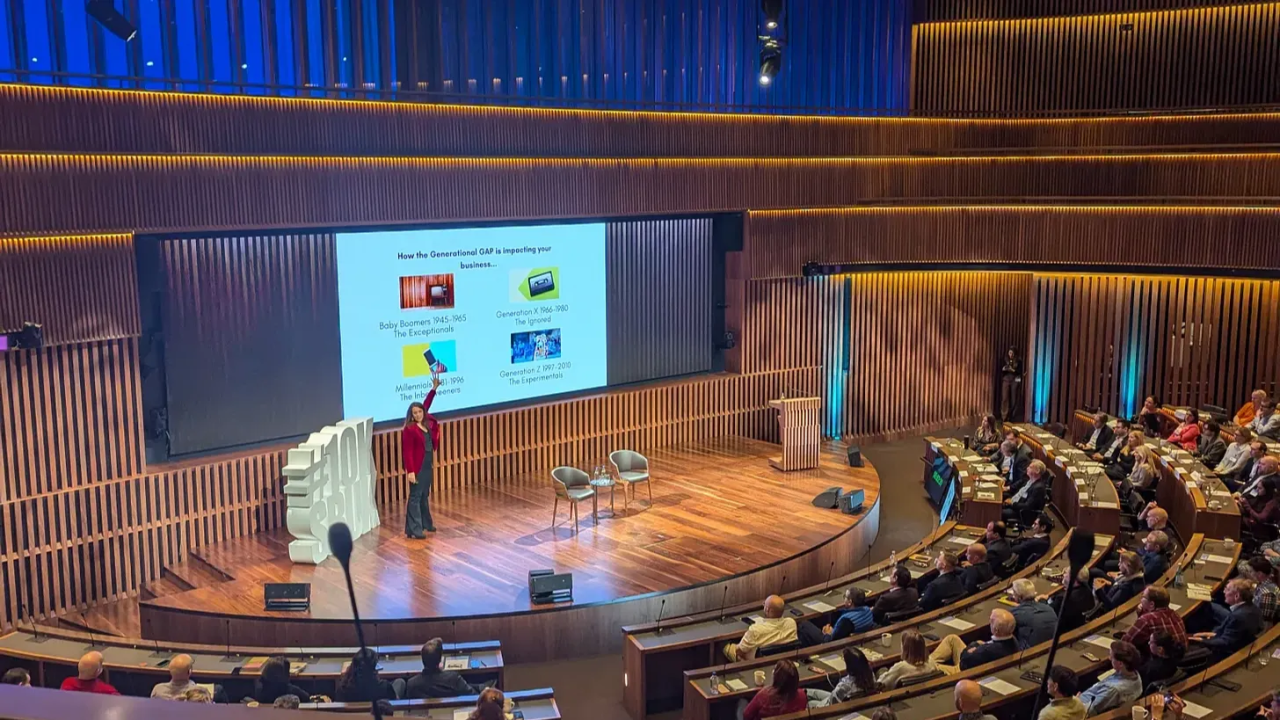
The Gendering of Productivity
Dr Eliza Filby
Sunday Times Bestselling Author and Award-Winning Speaker on Generations, Work, Wealth & Family | Host of It’s All Relative Show | Creator of the #MajorRelate Newsletter | Latest Book: Inheritocracy
Maybe we need to reassess our relationship with data ...
Welcome to Dr Eliza Filby’s Newsletter,
This community is now over 6000 strong…. stay here to discover the key mega-generational trends that are defining how we live, love, work and consume. Do check out my website for my corporate content and courses. You can also mock as I attempt short-form video on Instagram.
In this week’s edition:
The Female Time Penalty
It takes an hour for me to get ready on a disciplined workday, often more. Meanwhile, my husband can roll out of bed and be out the door in 15 minutes—10 at a push. In that short time, he’s ready to face the world. I, however, often have to choose between being on time or leaving my home feeling polished and professionally presentable. And this is just the beginning. He doesn’t experience the frantic mid-evening outfit changes required for party season, often involving a Wonder Woman-style turnaround in a disabled toilet. Nor does he deal with hours-long appointments for nails, hair, or, as Miquita Oliver highlighted on the Miss Me podcast, the ten-plus hours needed to have her hair braided.
This isn’t about vanity, attractiveness, or fashion. It’s about the time women are expected to invest just to be deemed professionally presentable. Society’s judgment on appearance is of course universal, but it is not controversial to say that women face a harsher, more unforgiving scrutiny. Can she be taken seriously? Is she polished enough? This pressure—let’s call it the "grooming time penalty"—disproportionately impacts women in professional spaces. It’s no wonder women favour remote working; it saves us from paying this daily tax on our time.
But the grooming penalty doesn’t just waste women’s time—it highlights how deeply masculine the culture of productivity is. This disparity doesn’t just affect women’s grooming time; it shapes workplace expectations. Corporate culture rewards constant availability, quick turnarounds, and streamlined efficiency—standards that align with the predominantly male experience of unburdened time. Women, however, are often juggling more than just their workloads. Outside the office, experts have highlighted how they tended to carry the "mental hours" of parenting (planning playdates, shopping, and managing schedules) and emotional labour (soothing tensions, and worrying about well-being). Together, these form the "mental load," an exhausting and invisible burden that keeps both home and work running smoothly.
And just as these dynamics exist at home, they’re mirrored in the workplace. Women tend to excel at tasks that can’t be measured—listening, connecting, teaching, mentoring, yes, wellbeing—and often face disadvantages because of it. In a culture obsessed with metrics and quantifiable results, these intangible contributions are rarely recognised even in 360 assessments.
Yet, paradoxically, these "soft skills" are becoming increasingly important, especially in the age of AI. As automation takes over tasks that are easily measured and replicated, human qualities like empathy, adaptability, and the ability to listen and teach will define the future of work. These are the things that are hard to measure but tend to be the skills women master. In the age of AI, surely the hope should be that both genders are given the freedom to indulge in the unmeasurable.
The Reading Room
Recs
This week I spoke at the Goldman Sachs Small Business Event, The Trouble Club, the Resolution Foundation and a global Law Forum. If you would like me to speak to your business or if you are interested in embedding the learning a little deeper through my courses and workshops, find out more here.
Thanks for reading,
Eliza
LEVRA Co-Founder, CEO | Oxford MBA | Ex-Clifford Chance | Certified Coach (CPCC)
1 天前Excited to hear more about this in the newsletter Eliza, especially how the rise of soft skills is reshaping work in a world that is advancing so rapidly technologically
Head of Marketing - Benchmark
3 天前Yes to this ????. Same in my household Dr Eliza Filby !
Founder/CEO of Ground & Water | Award Winning South Asian Female Business Leader | Engineer | Geologist | Mum of 3 | Podcaster | School Governor | Goldman Sachs 10KSB Alumni | Speaker | Gender Equality Advocate
3 天前Thanks Dr Eliza Filby for an insightful article, especially on highlighting the female time penalty!